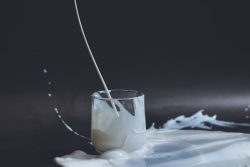We continually make strides in migraine disease and headache disorders education but we still have much work to do. As we succeed to reduce the stigma that surrounds migraine and headache, it’s time for a definitive name for migraine. Once migraine is qualified as a disease, its stigma will be reduced and patients will be taken more seriously and most likely receive an accurate diagnosis sooner. In order to do this we need to use the correct terminology when discussing migraine disease and headache disorders; call migraine a migraine and headache a headache. After all they are two very different things.
A Migraine is not a Headache
The majority of people including many in the medical community continue to use ‘migraine headache‘ when discussing migraine disease. This is problem because migraine is a genetic neurological disease that impacts the entire body; migraine is a primary disorder – a disorder by itself. Headache may be either a primary disorder or secondary disorder, and may be a symptom that is caused from another disorder. Migraine disease is not caused by any other disease or condition. It’s not a symptom of any other disease or condition. To that end, many advocates, myself included become extremely aggravated when we hear the term ‘migraine headache.’
Dr. Oz and the TV ‘Experts’
A recent Dr. Oz show entitled The New Science to Reverse Aging included a segment on how to treat ‘migraine headaches‘ holistically. One of the first problems I notice are they talking about migraines or headaches? Neurologist Dr. Majid Fotuhi (who isn’t a board certified doctor in headache medicine from the United Council of Neurological Subspecialties) was one of the featured guests and talked about the various foods can help reduce ‘migraine headache’ pain. To his credit, Dr. Fotuhi said the most important “weapon against frequent ‘headaches‘ is prevention, prevention, prevention.” I’m fairly certain at this point he means migraines – so why not use the correct term? Dr. Fotuhi goes on to say the best way to prevent ‘headaches‘ is exercise, avoid trigger foods that trigger ‘headaches’ and monitor the foods you eat because certain foods may be able to reduce the frequency of certain types of ‘headaches.‘ Trigger identification and management along with exercise are important pieces of any migraine management plan. For some exercise will trigger a nasty migraine attack.
Terminology Matters
At this point in the show, neither doctor has taken the time to distinguish the difference between migraine disease and headache disorders. Dr. Oz goes on to explain ‘migraine headache’ pain occurs on one side of the head, with nausea and light sensitivity. Many times this is true, but not always. Migraine pain can occur on both sides of the head, be mild to moderate and/or severe to debilitating. An attack can last from 4- 72 hours, sometimes longer, and not everyone will experience nausea.
Dr. Fotuhi reports that foods high in riboflavin which is vitamin B2 can “help reduce certain types of headaches and migraine headache.'” Mushrooms, asparagus, quinoa, milk are indeed high in B2 and it’s used for migraine prevention, but again, some of these foods may be strong migraine triggers for certain people. The doctors continue to interchange migraine and headache.
‘Hormonal headache’ and foods used to prevent them include those rich in magnesium like sweet potatoes, spinach, chard and bananas Dr. Fohuti goes on to say. But eating these foods may be a strong migraine trigger for some. He continues to report that eating these foods can help reduce ‘menstrual headaches‘ and even suggests taking 450 mgs of magnesium will help prevent ‘hormonal headache. No mention here of checking with your doctor before you take the supplement. According to International Headache Society’s International Classification of Headache Disorders – III, 3rd edition, beta version or ICHD-III 3rd ed., beta version there is no diagnosis of ‘hormonal headache‘ or ‘menstrual headaches‘. However, pure menstrual migraine without aura, menstrually related migraine without aura and non-menstrual migraine without aura can all be found in it. Let me stress again how important correct terminology is.
Dr. Oz then describes tension type headache (a real diagnosis) as a “dull pain, band around the head, and the muscles behind your temples are contracting.” Eating foods with high levels of Coenzyme Q10 such as eggs, broccoli, cauliflower, tuna, organ meats and salmon may be beneficial for tension headache according to Dr. Fohuti – or they can be strong migraines triggers for some people. Dr. Fohuti says to avoid a tension type headache it’s imperative to get eight hours of sleep each night and practice daily relaxation. The truth of the matter is it’s more important to go to bed and wake up at the same time every day, seven days a week, then get various eight hour pockets of sleep.
The doctors went over “cold or flu headache” which doesn’t exist in the ICHD-III 3rd edition, beta version. Dr. Fotuhi said when we have a cold we can become dehydrated, so eating foods that have a high water content include strawberries, pineapples, watermelon and cantaloupe will help with that. Becoming dehydrated is not a good idea at any point for people with migraine and can certainly trigger a migraine attack.
Dr. Fotuhi goes on to say not to take aspirin, ibuprofen and/or acetaminophen more than once a week when you have a ‘headache‘ or you may get medication overuse headache or moh, formerly called rebound headache. In part he is correct, but the reality is if we use pain relievers, whether over-the-counter and/or prescription or migraine abortive medication, more than two to three times a week we may get moh. He never discusses how many ‘headaches‘ are too many or when to see a doctor, intimating that we should be able to handle our head pain with these vitamin rich foods and supplements. This is neither true nor accurate.
In my opinion, when discussing migraine disease prevention and treatment, it would be nice to hear from an expert, someone who is board certified in the related field and really knows what they are talking about.
Resources
“Dr. Oz offers holistic help for headaches and migraines.” Examiner.com, July 22, 2013.
“Foods Solutions to Ease Headache Pain, Part I.” The New Science to Reverse Aging. The Dr. Oz Show. August 15, 2013.
















Excellent article! Yes migraine is a disease and it’s also very personalized and when I see the food lists of what to eat or not eat it really upsets me. Because people rely on these lists and then when they don’t work it leads to more depression and migraines. Best is to really figure it out for yourself. I notice at first bite of something I feel my body almost screaming no more to me. The taste goes even bland in my mouth. It feels like dead food even if it’s supppsed to be healthy. That’s my cue to stop eating it. I do best on my homemade chocolate, lots of raw cane sugar and goat milk endless cups of herbal teas and pancakes without eggs. Cauliflower triggered a migraine this time. Can’t have cabbage either most veg I can’t. But if they are a veggie powder sold in health shops I can.
The Wee potion cottage
I have been dealing with migraines since I was 14 yrs old. I am 40 now, and the past 3 years I have had no life…just pain. I have tried all the preventative meds that I could tolerate and now I am up to the strongest pain med there is and still no relief I have to go to the ER and get shots and it still comes back. I am trying to find a place where I can be admitted and they monitor me. HELP
Finally someone who understands what migraine is, even my neurologist who specialises in migraines and headaches was stumped with me. I had mine since age 5 and all types of it, now at age 58 I found out on my own that milk is my cure and not trigger. Due to mycoplasma infection only food I was able to tolerate fully was milk, so I drank about four big glasses a day and after third day they disappeared, so I stuck with my 2 or more glasses of milk a day and only had minor weather related ones.
WOW! Finally information to set the record straight. Although I like Dr. Oz, I do find his ‘cures’ for various things too general and simplistic. As a migraine suffer for 20+ years, it has been a frustrating journey. I do believe that the medical field has come a long way in understanding and treating migraines but to those that suffer, its still not enough. Although I have finally found a drug that helps and patterns to avoid or follow, I hope one day the medical field will find a way to cure this disease